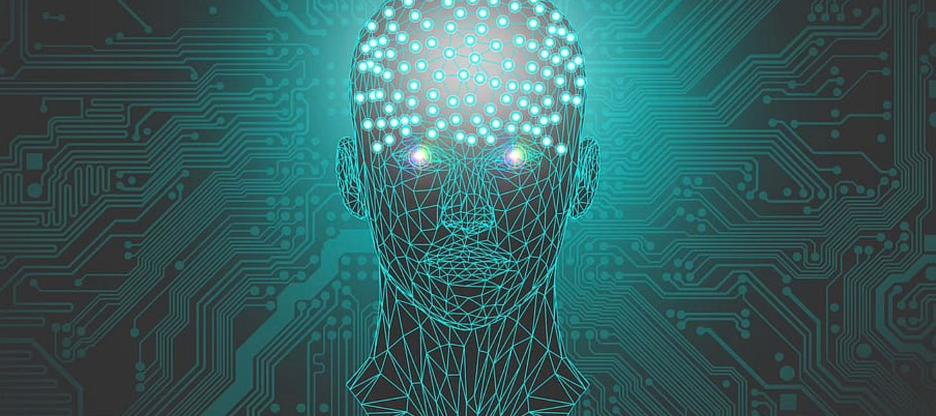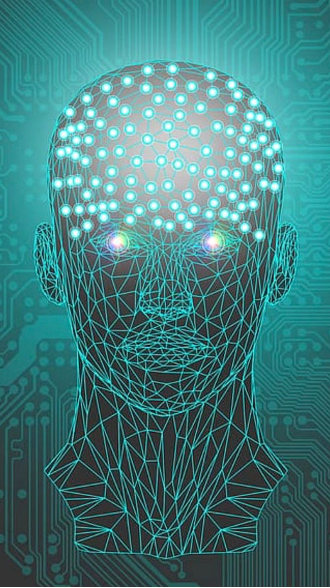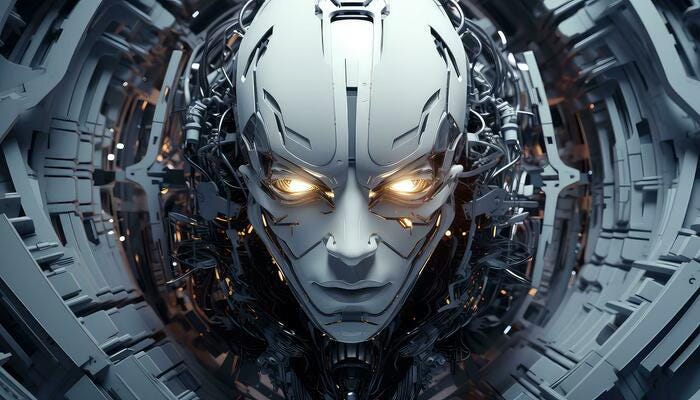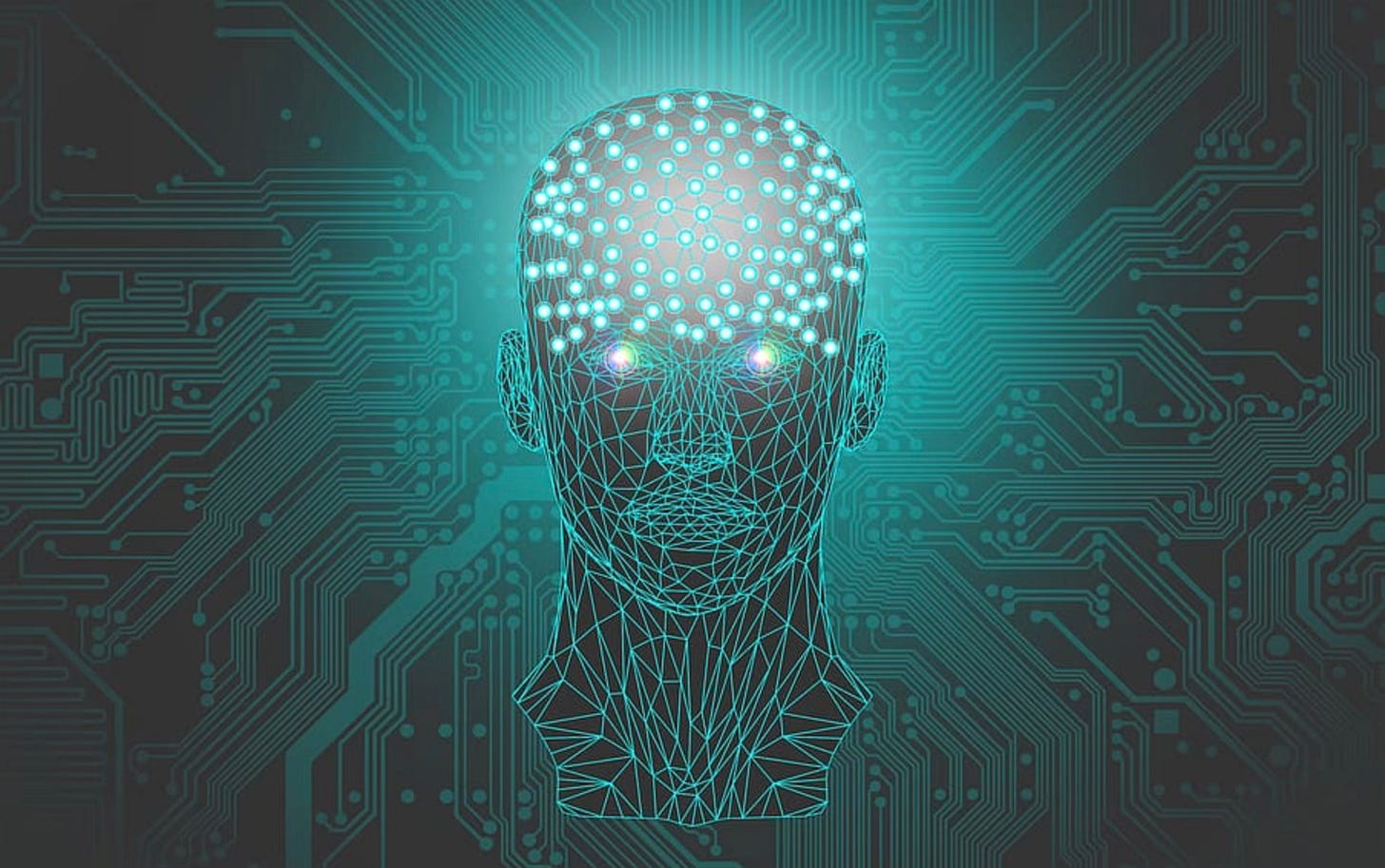The Age of AI: Our Human Future—a book co-authored by Eric Schmidt and Henry Kissinger—is marketed as a sober warning about the risks artificial intelligence poses to humanity. But let’s not kid ourselves. Coming from men who have spent their careers consolidating power, not distributing it, this isn’t a warning—it’s a white paper. A strategy document dressed in moral concern.
Kissinger helped orchestrate coups in foreign lands. Schmidt ran Google, one of the most powerful information gatekeepers on the planet. These aren't defenders of decentralization. These are architects of control. When they speak of AI’s “risks,” they’re not clutching their pearls out of concern for humanity—they're outlining the contours of a future they intend to shape. Their warnings are admissions with plausible deniability baked in.
What future do they sketch? One where society is divided: those who program the machines, and those who are programmed by them. The digital priests and the data-fed peasants. In times of crisis—war, famine, financial collapse—they don’t propose empowering communities. No, their solution is to hand the reins to AI: let it decide who gets what, who lives where, who eats, and who waits.
Sounds efficient. Sounds fair—if you’re the one writing the code. But here’s the catch: AI doesn’t think. It doesn’t “know.” It reflects. It reflects the data we feed it. And who controls that data? The media, academia, corporate gatekeepers—people just like Schmidt and Kissinger. People already perched at the top of the hierarchy, now engineering an invisible system to stay there permanently.
You don’t need CIA coups if you can curate the global algorithm. You don’t need NSA wiretaps if you can shape the information that flows through every screen, every voice assistant, every automated decision-maker. With AI, you don’t invade a country. You tweak a prompt. You don’t have to win hearts and minds. You design them.
And what happens when you test the limits? Criticize the wrong state. Mention certain political taboos. Question sacred cows.
AI shuts you down—flagged as hate speech, misinformation, or worse. The algorithm becomes the moral authority, even though it has no morals—just a rulebook written by people with interests and agendas.
So no, this isn’t just a tool. This is a Trojan horse with a PhD. A Frankenstein’s monster, yes—but one that doesn’t go on a rampage. It smiles politely, quotes approved sources, and locks the door from the inside. And once it's out in the world, there’s no putting it back in the box. This isn't speculation.
This is infrastructure being laid—today. Their version of fairness is loyalty to the system—compliance, behavioral alignment, a spotless digital footprint. What happens if your social media history or biometric data doesn't fit the profile of a "worthy" recipient? AI rationing becomes not just technocratic but authoritarian. And we let it happen.
AI is not just about efficiency. It's about control. It's already being deployed in war zones, from Gaza to Ukraine, identifying hundreds of "targets" a day. How does it decide who qualifies as a target? Increasingly, the answer may lie in patterns of behavior, speech, online activity. Surveillance technologies perfected in occupied territories become export products. Israel's defense-tech ecosystem profits off of oppression, testing technologies on Palestinians before shipping them abroad.
Peter Thiel and his ilk, the so-called PayPal Mafia, are right at the center. Palantir, Thiel's brainchild, is now a lynchpin in this matrix of surveillance and military AI. Thiel claims to be libertarian while selling the most sophisticated authoritarian tools to the U.S. intelligence community. It's a scam dressed in ideology.
One of the great lies behind AI is that it is objective and accurate. But facial recognition tools in the UK, for example, have accuracy rates worse than 50% as for now. And yet governments continue to adopt and deploy them, not because they work but because they are useful. Useful for profiling. Useful for maintaining control. Accuracy is irrelevant if the point is fear and obedience.
And let’s not forget the corruption. Government contracts often go to insiders. Oversold systems become gatekeepers for life-critical services, their flaws hidden by NDAs and PR spin. It's the digital equivalent of giving a corrupt cop a nuclear button.
Elon Musk. Peter Thiel. They sell the myth of being rebels against the establishment. But the reality? They're deeply embedded within it. Musk’s companies thrive on government subsidies. SpaceX exists because of military and intelligence contracts And while I like Musk more than others he still is very much part of the system and contributing to it weather he likes it or not. Thiel and Musk have positioned themselves as anti-establishment while building the very architecture of the new digital state. Their public personas are a sleight of hand, misdirection to keep the masses enthralled.
The public, trained by superhero movies and hollow campaign promises, waits for a savior. Someone who will stand up to the system. But history shows this is a lie. Politicians accumulate power. Movements get co-opted. And while we wait, the machine tightens its grip.
Real resistance isn’t national. It’s local. It’s grassroots. It’s self-sufficiency, community resilience, rejecting dependency on centralized systems. It’s growing your own food, creating your own networks, and learning to think for yourself again.
Schmidt and Kissinger warn that AI will lead to "cognitive diminishment" but frame it like a weather event—inevitable, neutral. But it’s not. It’s engineered. The more we outsource thinking and creating to machines, the less capable we become. What happens when a generation loses its ability to make decisions, to form opinions, to imagine?
Creation is a spiritual act. It connects us to something older and deeper than any algorithm. When we stop creating, we don't just lose skills. We lose ourselves. Our souls atrophy. We become passive consumers in a machine-led society, waiting for instructions, rewards, punishments.
The elites know this. They want a world where AI becomes a new religion, where humanity worships the very thing it built. They want Narcissus, staring into the machine's reflection, forever entranced. A society of hollowed-out humans, docile, predictable, easy to harvest.
We have to resist not by smashing the machine, but by starving it. Refuse to be the fuel. Create. Connect. Think. And remember what it means to be human.




